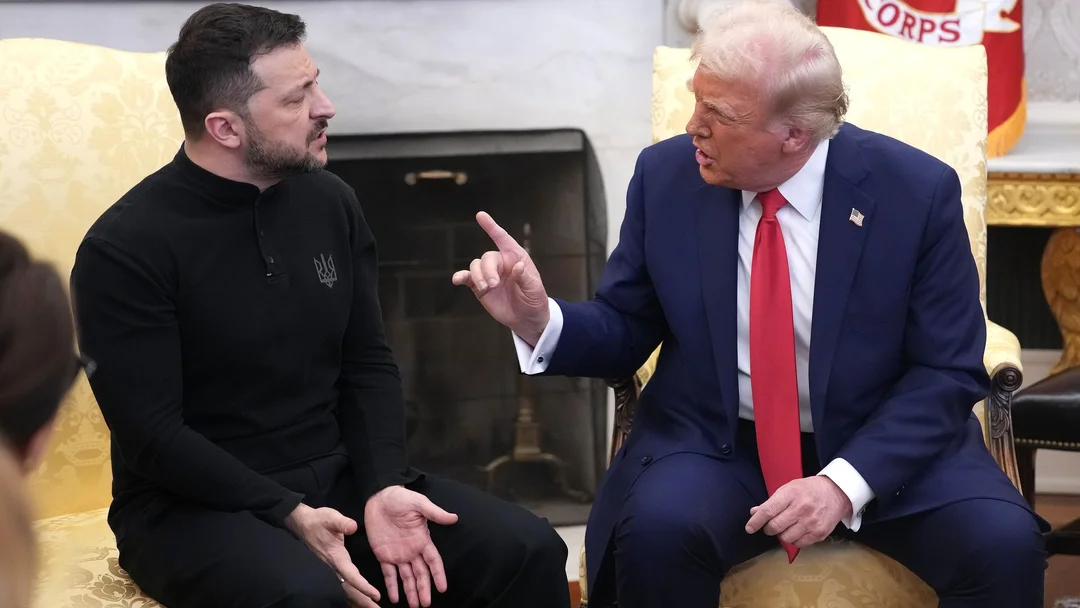
Is Trump’s Peace Proposal to Ukraine Receding Under Zelensky’s Rejection?
In a flurry of political developments surrounding the ongoing conflict in Ukraine, former President Donald Trump has delivered a stinging rebuke to Ukrainian President Volodymyr Zelensky, accusing him of sabotaging a proposed U.S. peace plan. This controversy emerges as the U.S. has allegedly offered Ukraine a final proposal for peace negotiations, which includes controversial stipulations such as recognizing Crimea as Russian territory and denying Ukraine's NATO membership.
Trump's remarks, articulated on his social media platform, Truth Social, reflect a growing tension around the delicate balance of diplomacy in the region. He stated, "This statement is very harmful to the Peace Negotiations with Russia," pointing specifically to Zelensky’s assertion that Ukraine would not recognize Russia's control over Crimea—an assertion that aligns with Ukraine's constitution but is viewed by Trump as counterproductive to the peace talks.

"It’s inflammatory statements like Zelenskyy's that make it so difficult to settle this War. He has nothing to boast about!" Trump continued, emphasizing his belief that a deal with Russia is close if only Zelensky would soften his stance.
Compounding the complexities of this situation is the U.S. envoy, Steve Witkoff, who is scheduled to meet with Russian President Vladimir Putin, intensifying scrutiny over the U.S.'s approach to the ongoing conflict. Trump suggested that possibly recognizing Crimea as Russian territory would detach the current impasse and create pathways for negotiations—though this notion remains wildly contentious.
Zelensky's response was unequivocal. "Ukraine will not legally recognize the occupation of Crimea," he reiterated, dismissing Trump’s framework as unrealistic. Furthermore, top U.S. officials have been reported skipping important talks that pertain to Trump’s proposed peace framework, suggesting a diplomatic disconnect.
European officials express wariness over Trump’s confidence in reaching a quick deal, viewing it as potentially another means to edge Ukraine towards concessions detrimental to its sovereignty. With each new twist in the unfolding political drama, the negotiations continue to hang by a thread, raising questions about the fate of both Ukraine and its path to European integration.
Amidst these negotiations and counterclaims, the state of peace remains tenuous, with many stakeholders weighing the implications of a U.S. deal heavily tilted in favor of Russia.
As the world watches this geopolitical chess match unfold, pertinent questions arise about the nature and direction of U.S.-Ukraine relations. Are the aspirations for peace being compromised by political rhetoric? With the stakes as dire as they are, one must wonder how much longer both sides can afford such unyielding positions.
What are your thoughts? Can diplomacy prevail, or are we witnessing the collapse of a potential peace agreement? Share your views in the comments below.